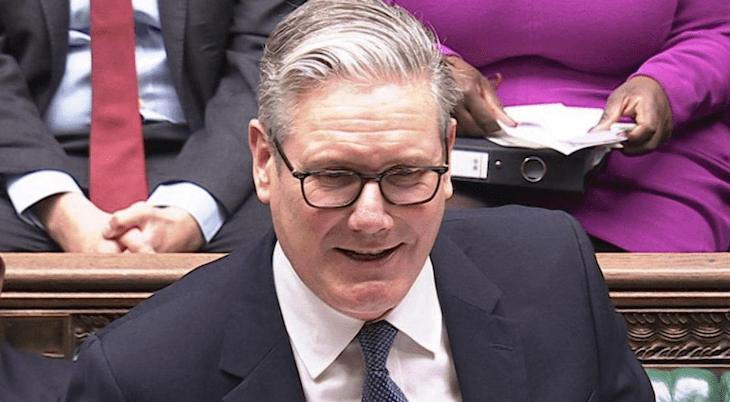In news bound to make Keir Starmer nervous, voters in 121 Labour-held constituencies with high rates of child poverty are reportedly prepared to support Nigel Farage at the next election and hand their seats to Reform. This shock projection, via the Financial Times and More in Common polling, came less than a fortnight after the Reform party leader declared that he would scrap the two-child benefit cap. Could it be that limiting benefits to families with two children, a policy once so popular with the public, has lost its appeal?
Farage is winning over swathes of Labour’s heartland in part because he has smelled a vote-winner: removing the two-child benefit cap may play to Reform’s natalist agenda, but being seen to battle child poverty will make a fatherly Farage popular across the country’s disadvantaged areas. While the government stalls on publishing its child poverty strategy, alarming stats have brought home to parents in the poorest areas just how badly their children are faring.
A poor early start risks affecting children long-term, too
No matter their race, ethnicity, number of siblings or parents’ party allegiance, children born in areas such as Blackpool or Knowsley (both with some of the highest proportions of disadvantaged neighbourhoods among local authorities) are less likely to achieve good developmental goals by the age of five. They are more likely to be obese and suffer from untreated tooth decay and have 55 per cent more visits to A&E than their peers in affluent areas. Aida Cable, CEO of the Thrive at Five charity, points out that:
For years, only half of children eligible for free school meals have reached a good level of development by the end of Reception, while their better-off peers have seen year-on-year improvements in outcomes.
A poor early start risks affecting children long-term, too: less than 20 per cent of all white British teenagers from low-income homes will achieve a Grade 4 in their English and Maths GCSEs, while Black Caribbean children aged 16 fare even worse. The number of NEETs (young people aged 16-24 not in education, employment or training) has soared to nearly a million – representing one in seven in this age group. These lost youths are more likely to risk depression, future unemployment or low-paid employment, as well as substance misuse.
While some charities argue that there is a strong correlation between areas with high levels of child poverty and high numbers of families impacted by the two-child limit, others feel the focus should be on reducing attainment gaps: ‘We need a laser-like focus on improving early outcomes for children in deprived areas,’ argues Aida Cable.
Some educationalists point out that the latest dire results affect all children in low-income areas, and that their family composition – whether raising two children or six – has little bearing on outcomes: ‘How sad it is that we are crying out for more funding for families with young children,’ says Natasha Whiles, Executive Principal at Grace Academy in Coventry:
We already know what the problem is: poverty and shocking standards of living for families in economically-deprived areas. The question is, what is being done to tackle it? The solution is investing in these communities.
The Conservative government tried to do just that last year with its £301 million funding for 75 family hubs in the most deprived areas. The ‘Family Hubs and Start in Life’ programme focused on addressing the attainment gap at age 5, delivering a mixture of services, including health visitors, SEND experts, therapists and more in the community hubs. In their election manifesto, the Tories promised to extend the hubs nationwide.
A network of support for families in struggling communities: this seems like a reliable way to improve a low-income child’s early years and reduce inequality. Will Labour’s postponed strategy to fight child poverty admit as much when it’s eventually published? Farage may beat them to it.







Comments